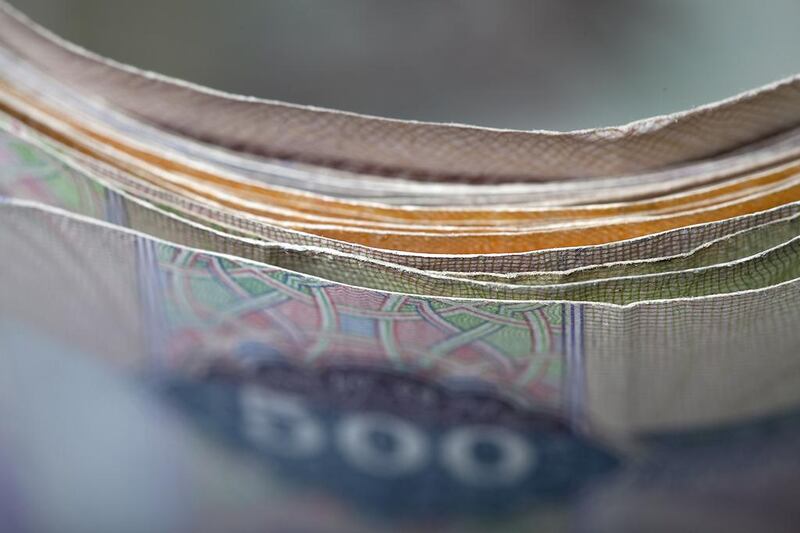The governor of the Central Bank says the Government is working to allow the lender of last resort to control monetary policy independent of the state.
Mubarak Al Mansoori said the authorities were in talks to change federal banking law to give the Central Bank a say in deciding monetary policy.
“The law aims to empower the central bank board in determining the direction of monetary policy in consistency with the requirements for the national economy,” Mr Al Mansoori said in a response to questions from the Reuters news agency.
His comments come as central banks around the world prepare for Basel III, a set of international banking reforms that is to come into effect in 2018.
Global organisations such as the IMF and the World Bank are also pushing to make central banks independent around the world.
However, as long as the dirham is pegged to the US dollar, an independent monetary policy will be difficult to achieve in practice.
In March, Mr Al Mansoori made it clear that the Central Bank had no intention of doing away with the dollar peg.
Even though pegging the dirham to the US dollar yields many benefits, a major disadvantage is that the Central Bank is unable to have an independent monetary policy, according to Alp Eke, a senior economist at the National Bank of Abu Dhabi.
Although pegging their currencies to the dollar compels the UAE and other Arabian Gulf states to follow US monetary policy despite differences in economic fortunes, it has the benefit of tracking the world’s reserve currency.
And as the dollar strengthens against currencies such as the euro and the yen, imports from Europe and Japan become cheaper.
Last December, the Central Bank defended the dirham’s peg to the dollar amid the plunge in crude oil prices.
That followed media reports suggesting that the UAE, a major oil producer, would rethink its currency peg.
Marios Maratheftis, Standard Chartered’s global chief economist, said even though the UAE’s monetary policy was constrained by the dollar peg, there might be ways around it.
"Macro-prudential measures that can allow the Central Bank to move against the business cycle, easing credit conditions during an economic downturn and tightening during a boom would be a welcome development that could smooth the economic cycle," he said.
The Basel III banking regulations, unpopular with many bankers who view them as stifling growth, aim to prevent a repeat of the global financial crisis in 2008.
By reining in how much money banks can borrow and lend, the regulations are intended to ensure that financial institutions have enough cash on hand to deal with any trading losses.
In the past couple of years, the Central Bank has been pushing local banks to comply with the Basel regulations.
Last week it sent a circular to local banks, asking them to ensure that they have sufficient liquid assets to weather financial storms.
Mr Al Mansoori also said that the central bank expects the country’s credit growth “to remain robust”.
mkassem@thenational.ae
Follow The National's Business section on Twitter





